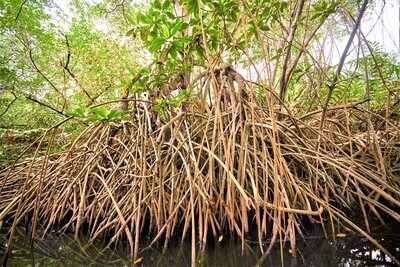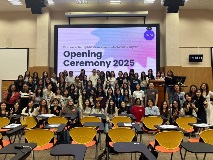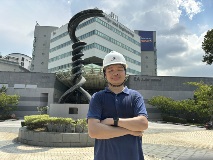Donor backs research at new NUS Centre which studies nature’s ability to heal itself
The Indonesia BHS-View Avatar Island. The world's oceans absorb carbon dioxide that would otherwise stay in the atmosphere.
As nature protects us, we have a duty to protect nature.
Picking up the mantle, MAC3 Impact Philanthropies has pledged to support Blue Carbon research at the NUS Centre for Nature-based Climate Solutions.
Blue Carbon refers to carbon captured by our oceans, marines and coastal ecosystems. Keeping these ecosystems healthy is crucial for conserving coastal biodiversity, safeguarding fisheries for food security, and sustaining rural livelihoods.
The motivations behind MAC3’s donation are simple yet powerful. A father himself, MAC3’s co-founder, Dr Antoine Firmenich, said: “We all have a duty to leave to our children an earth that is as beautiful, inspiring and pristine as we’ve experienced it ourselves.”
Protecting the future has to be a well thought out endeavour. That means backing causes that are scientifically proven to do the most good, and which generate the most returns for their philanthropic dollar.

The Cispata Columbia Mangroves. Mangroves can store up to 10 times more carbon per acre than a typical terrestrial forest.
As compared to the forests, Blue Carbon ecosystems, such as mangroves and seagrasses, are significantly more efficient in removing and storing carbon dioxide from the atmosphere.
Helmed by renowned conservation scientist Professor Koh Lian Pin, the new Centre will boost a multidisciplinary team of world-class researchers.
Returning to his alma mater after over a decade abroad, Professor Koh is determined to produce policy-relevant science with real world impacts, by building the evidence base to help inform decisions.
Professor Koh’s prudent approach was inspired by his growing years in Singapore during the late 1970s.
“I have fond memories of catching jumping spiders and rearing tadpoles with my cousins in the kampongs. Later in life, I was fortunate to have benefited from Singapore’s economic successes, although that came at a cost to our environment,” Professor Koh recalled.
“This juxtaposition of my early life experiences has had a profound influence on my goal as a conservation scientist — to find ways to help reconcile economic development with environmental protection,” he elaborated.
Together with MAC3, that dream has set sail.






